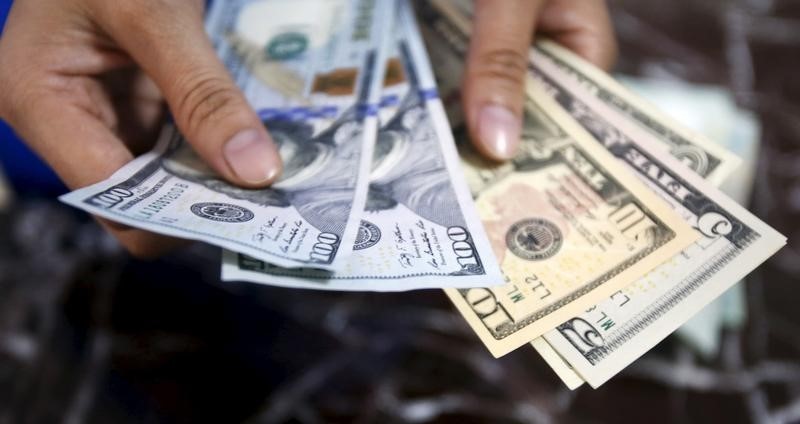By Peter Nurse
Investing.com - The dollar edged higher in early European trade Thursday, but remained near the bottom of its recent range in holiday-thinned volumes as fears over the Omicron Covid-19 variant continued to subside.
At 1:45 AM ET (0645 GMT), the Dollar Index, which tracks the greenback against a basket of six other currencies, traded 0.2% higher at 96.105, helped by rising U.S. Treasury yields, with benchmark 10-year yields hitting 1.56% on Wednesday, the highest since late November.
USD/JPY rose 0.2% to 115.16, at a one-month high and not far away from the 115.51 level it reached in November, its highest since early 2017. EUR/USD fell 0.3% to 1.1317, still close to a one-month high, GBP/USD edged lower to 1.3477, just off its highest since Nov. 19 reached overnight, while the risk-sensitive AUD/USD edged higher to 0.7249.
“Although Omicron cases in the US and Europe, amongst others, continue to surge, it has yet to make its presence felt negatively in economic data. With market activity much reduced for the holiday season, investors continue to price in a global recovery, hitting a minor bump, not a pothole,” said Jeffrey Halley, an analyst at Oanda.
“Europe’s restrictions will have a tail impact, but, for now, markets are overwhelmingly pricing in the latest variant as a milder incarnation, despite its easier contractibility.”
Investors will focus on the release of weekly initial jobless claims later Thursday for further evidence that the U.S. economic recovery continues despite the rising number of Covid cases.
Initial unemployment claims totaled 205,000 in the week ended Dec. 18, unchanged from the prior period, Labor Department data showed last week, a level that is generally consistent with pre-pandemic levels.
The claims figure is expected to be largely unchanged, at 8:30 AM ET (1330 GMT), illustrating the low levels of job losses seen in recent months as employers focus on attracting and retaining workers to keep pace with consumer demand.
Elsewhere, USD/TRY rose 5.8% to 13.3723, with the lira giving back some of last week’s hefty gains after President Recep Tayyip Erdogan announced a scheme to protect lira deposits against currency volatility.
The Turkish lira had previously fallen to record lows on the back of the central bank slashing its policy rate by 500 basis points since September even though inflation soared above 20%.
